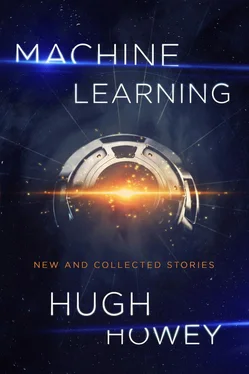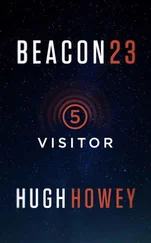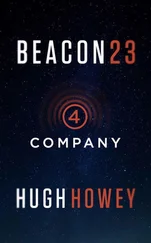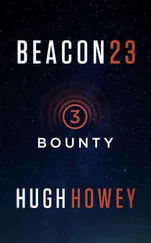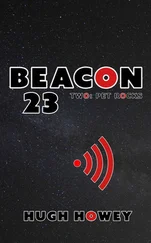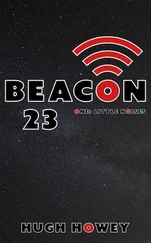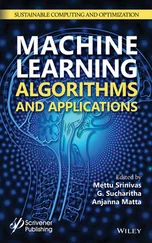He hasn’t seen anything like this since Syria. It’s like a chemical attack, these unwounded dead.
Memories from the field surge back, memories of politicians back when they were soldiers. He gets in and cranks the Lexus, and the whine of the starter reminds him that it’s already running. The car has taken itself out of gear. John adjusts the rearview and begins to inch forward and back, working the wheel, until he’s sideways in traffic. Once again, he pulls off the interstate and down the embankment.
He heads straight for the wreckage of the Explorer and the van and gets out. Before Barbara and Emily can get to him, he has already pushed the passenger of the van back through the window and has covered him with the sport coat folded up on the passenger seat of the Lexus. John opens the back of the SUV, and Barbara whispers something to Emily. The three of them begin rounding up their gear and luggage and placing it into the car. It is a scavenger hunt for Emily. A box of canned goods has spilled down the embankment, and as she picks up each can and places it into the basket made by clutching the hem of her dress, John feels how wrong all of this is. There is too much normal left in the air. Being alive feels unnatural, a violation. He watches a buzzard swing overhead and land with a final flap of its wings on the top of the billboard. The great black bird seems confused by the stillness. Unsure. Disbelieving its luck.
“Is this ours?” Emily asks. She holds up the small single sideband radio, the antenna unspooled into a tangle.
“Yes,” John says. He tries to remember what he was thinking to pack the SSB, what sort of foolish hope had seized him. Barbara says nothing, just works to get everything into the new car. She brushes leaves of grass off her carry-on and nestles it into the Lexus. Her silence is louder than shouted questions. She used to do this when John came home with stitched-up wounds, saying nothing until John feels his skin burn and he has to tell her.
“I wasn’t positive—” he begins. He stops as Emily runs over to dump the contents of her dress into the car. He waits until she has moved beyond earshot again. “Part of me hoped nothing would happen, that I’d never have to tell you.”
“What happened on the highway?” his wife asks. She shows him her phone. “I can’t get anyone… Dad won’t—”
“Everyone is gone,” John says. He repeats this mantra, the one he keeps rolling over and over in his head. “Everyone.”
Barbara searches his face. John can feel twelve billion souls staring at him, daring him to make her understand. Even he doesn’t understand. Beyond the next exit, maybe the world is continuing along. But he knows this isn’t true. Barbara looks at her phone. Her hand is shaking.
“There was no stopping it,” John says. “Believe me.”
“Who is left? Who can we call?”
“It’s just us.”
Barbara is silent. Emily returns and stacks cans between the luggage.
“This is because of what you do, isn’t it?” Barbara asks. Emily has gone back for more.
John nods. Tears stream down Barbara’s cheeks, and she begins to shake. John has seen widows like this, widows the moment they find out that’s what they are. It is shock fading to acceptance. He wraps his arms around his wife, can’t remember the last time he held her like this.
“Did you do this?” she asks. Her voice is shaking and muffled as he holds her tight.
“No. Not… not exactly. Not directly.” He watches Emily delight in another find, far down the slope of grass.
“It’s something you…” Barbara swallows and hunts for the words. “…that you went along with.”
John can feel himself sag. He can’t tell who is propping up whom. Yes, it was something he went along with. That’s what he does. He goes along with. In Milan, succumbing to another, never leading. Never leading.
Emily arrives with something blue in her hands. “Is this ours?” she asks.
John pulls away from his wife. He looks down. It’s the book. The Order. “No,” he says. “That’s nobody’s. You can leave that here.”
The Day Before
There are two envelopes nestled inside the blue book, two sets of plane tickets. John pulls them both out and studies them, angles them back and forth to watch the printed holograms catch the light. It is raining outside, the wind blowing fat drops against the bedroom window, a sound like fingers tapping to be let in.
He sets the tickets aside and flips through the large book at random. Tracy thought it was the Bible when she first saw it—by dint of it being in a hotel room drawer, no doubt. He thinks about the New Testament and how long people have been writing about the end of the world. Every generation thinks it will be the last. There is some sickness in man, some paranoid delusion, some grandiose morbidity that runs right through to distant ancestors. Or maybe it is the fear in lonely hearts that they might die without company.
John finds the section in the book on security. His future job detail. If he doesn’t show, will they promote some other? Or will it mean extra shifts for someone else? John tries to imagine a group of people skipping through time to wait out the cleansing of the Earth. He tries to imagine kissing his wife goodbye as he lays her in a silver coffin. Kissing Emily and telling her it’ll all be okay. One last lie to them both before he seals them up.
Because there’s no mistaking their ultimate fate. John can feel it in his bones whenever he reads the book. He knows when a person has been doomed by politicians. He knows when they say, “Everything will be all right,” that they mean the opposite. The book doesn’t say, but it doesn’t have to. Not everyone who goes into that bunker will come out alive. If he flies to Atlanta and does his job, he’ll never spend another day with his wife and daughter. Tomorrow will be the last, no matter what, and it’ll probably be spent in airports and in economy class.
He weighs the other tickets, the ones to Colorado Springs. Here is folly and madness, a group who thinks they can cheat the system, can survive on their own. Here is a woman who last year asked him to leave his life behind, his wife behind, and start anew someplace else. And now he is being asked again.
John holds the envelopes, one in each hand. It is usually another’s life he weighs like this. Not his own. Not his family’s. He doesn’t want to believe a choice is necessary. Can’t stand to think that Emily will never grow up and fall in love, never have kids of her own. Whatever life she has left, a day or years, wouldn’t really be living.
He suddenly knows what he has to do. John slams the book shut and takes the tickets with him to the garage. Rummaging around, he finds the old Coleman stove. There’s the lantern. The tent. He sniffs the old musky plastic and thinks of the last time they went on a vacation together. Years ago. What he wouldn’t give for just one more day like that. One more day, even if it is their last.
He finds a canister and screws it onto the stove, adjusts the knob, presses the igniter. There’s a loud click and the pop of gas catching. John watches the blue flames for a moment, remembers the horrible flapjacks he made on that stove years ago: burnt on the outside and raw in the middle. Emily loved them and has asked for her flapjacks like that ever since. He tries. But it’s not easy to do things the wrong way on purpose.
John sets both envelopes on the grill, right above the flames, before he can reconsider. It isn’t a choice—it’s a refusal to choose. He has seen too many folders with assignments in them, too many plane tickets with death on the other end. This is an assignment he can’t take. Cheat death or run to the woman he cheated with. He can do neither.
Читать дальше
